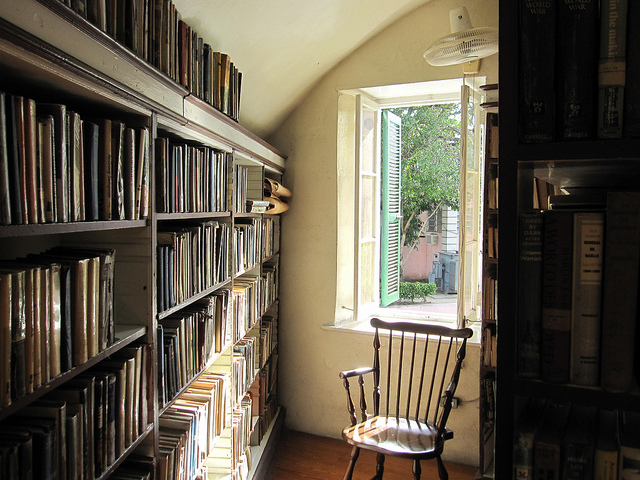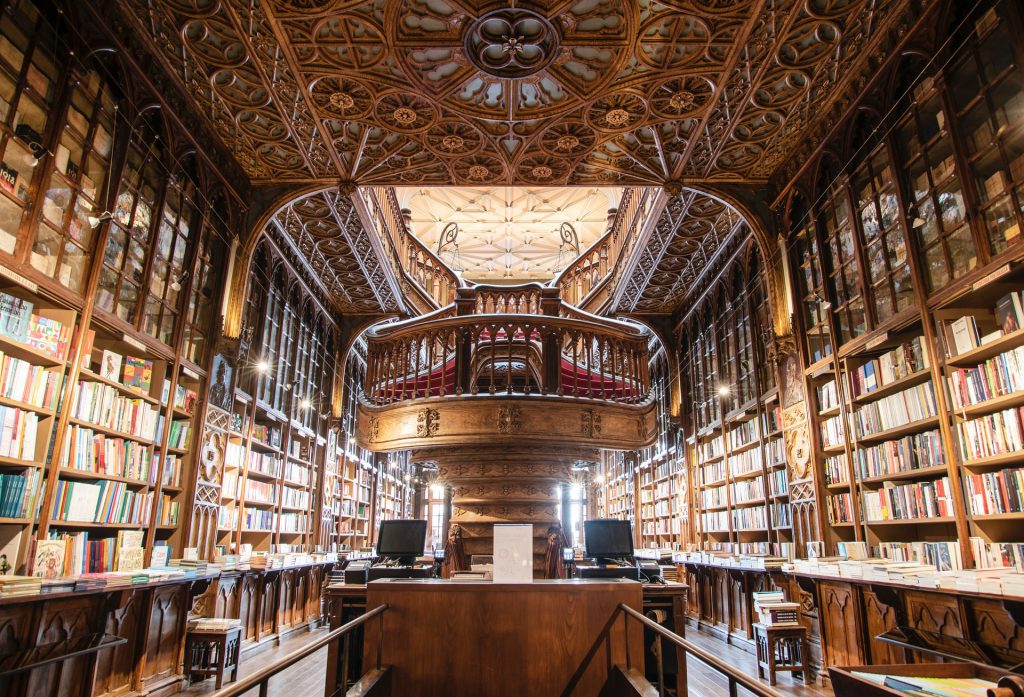Very Sad Post Warning: Six Amazing Libraries That Were Heartlessly Destroyed
NOOOOOOOOO
Ever since the first human scribe put stylus to parchment, books have been destroyed. Bummer, right? And, ironically, not something you read about that often: history’s written by the victors, and sometimes the victors are real jerks and don’t even start writing their own yay-me congratulatory epics until they’ve burned up all written evidence to the contrary. Literal scorched earth, if you know what I mean.
While we may not know what we’ve lost, we at least know where we lost it from. Here are six of the most tragic burnt-up, smashed-down, flattened-over, and ripped-to-shreds libraries in history.
The Library of Alexandria: The granddaddy of all destroyed libraries is the epic storehouse of knowledge in the Ancient Egyptian city of Alexandria. Popular imagination has pillars crumbling in a single, smoldering hailstorm of flaming scrolls, but it’s much more likely that the library weathered several attacks over the course of its battered existence: Caesar’s troops in 48 BC, Emperor Aurelian suppressing the uprising of Queen Zenobia in the 3rd century AD, Theodosius in 391 trying to wipe out all those pesky pagan writings, and the army of Amr ibn al Anas in 642.
Despite a history akin to Monty Python’s Swamp Castle, the Library of Alexandria didn’t survive all this burning down, falling over, and sinking into the mud, and as many as 40,000 books (according to Roman philosopher Seneca) were eventually lost.
NOOOOOOOOOOOOOOOOOO
Imperial Library of Constantinople: Just in case you weren’t 100% sold on the Crusades as Really Bad Idea, here’s a shining example of how dumb the whole endeavor was. The scholars of the Library of Constantinople dedicated themselves to transcribing the (approximate) zillions of Ancient Greek writings in their stores from flimsy, deteriorateable papyrus to sturdier parchment for generations.
All that Homer and Plato that we can read nowadays? Basically thanks to them. And then in 1204 a bunch of jerks Normans showed up on their Crusading horses and, rather than engage in a thoughtful cross-cultural dialogue, decided to chop up all those “pieces of sheepskin with funny squiggles on them.”
NOOOOOO guys what are you DOING stop
House of Wisdom: Other things that aren’t great for the distribution of knowledge: hoards of invading Mongols. The House of Wisdom in Baghdad totally deserved its name: besides being a library that housed countless works in Greek, Syriac, Chinese, Sanskrit, and Persian on subjects as diverse as medicine, alchemy, religious philosophy, and mathematics, it also hosted academic debates, commissioned research projects, and translated works from every country in the known world. It was effectively as busy and productive as a modern-day university, and it didn’t even have the internet.
But the Mongols were less interested in translation and more interested in just sieging stuff, and the House of Wisdom was razed when they invaded in 1258. Somehow, though, the Persian writer Nasir al-Din al-Tusi managed to save some four hundred thousand manuscripts from destruction, but the mind boggles as to how. Smuggling them under his shirt? Baking them into loaves of bread? Sneaking them out in a giant wooden rabbit?
Jerkface
Monasteries throughout England: When England’s most famous serial monogamist Henry VIII wasn’t accusing his ex of witchcraft or sweating under his collar about his lack of male progeny, he was instituting sweeping, mandatory religious reform the likes of which hadn’t been seen since, well, maybe the Crusades (and we all know how those turned out).
But chucking Catholicism for the new Protestant Anglican church meant more than just ignoring the Pope: all those pesky religious artifacts had to be disposed of, lest anyone be tempted. In typical vindictive fashion, Hal decided to just slash, burn, and salt the intellectual earth of his country, “dissolving” monasteries with violent force that resulted in the loss of countless (and irreplaceable) books of Anglo-Saxon, Latin, and Greek—and not with a dignified death at the stake, either. Contemporary sources report that a “great nombre” of them were used “to serve theyr jakes,” i.e., used as toilet paper. Major :(.
Three of these survived. THREE. Out of like 600.
Maya Codices in the Yucatán: The Spanish conquest of the Yucatán in 1562 is popularly associated with taking things: gold, land, people to be slaves. But some of the conquistadors just wanted to watch the world—or years’ worth of written histories—burn. Written in hieroglyphic script on cloth paper made from the bark of wild fig trees, the Maya codices unfolded to reveal ritualistic almanacs, astrological texts, and prophecies.
Naturally, when the Spanish discovered the books, they respectfully and carefully put them back where they found them—not. Like the Romans, Crusaders, and Mongols before them, they destroyed the everloving crap out of them. A contemporary observer, one Bishop de Landa, reported drily that “We found a large number of books in these characters and, as they contained nothing in which were not to be seen as superstition and lies of the devil, we burned them all, which [the Maya] regretted to an amazing degree, and which caused them much affliction.” Gee, you think?
Stop no please we’ll take back the tea tax or whatever just leave the books aloneeeee
The Library of Congress: Surprise! It’s still there, technically, but our national index of Every Book Ever had a rough time of it during the War of 1812 (AKA, Why Couldn’t The British Just Leave Us Alone After We Split Up). The so-called Burning of Washington was pretty much what it sounded like: British troops descended on the capital under the command of the aptly-named firebug Rear Admiral George Cockburn and started flinging blazing torches at whatever was handy, including the White House and the Library of Congress.
The library’s exterior was pretty much okay, but all the books inside were—literally—toast. In a postwar act of Founding-Father-y magnanimitude, Thomas Jefferson sold the rebuilt library 6,000 of his personal volumes to restock, because reading’s what America’s all about! (Or was at the time, anyway).

Blair Thornburgh
BLAIR THORNBURGH is a graduate of the University of Chicago, where she earned a B.A. in medieval studies and delivered a pretty good commencement speech. She lives in Philadelphia.

